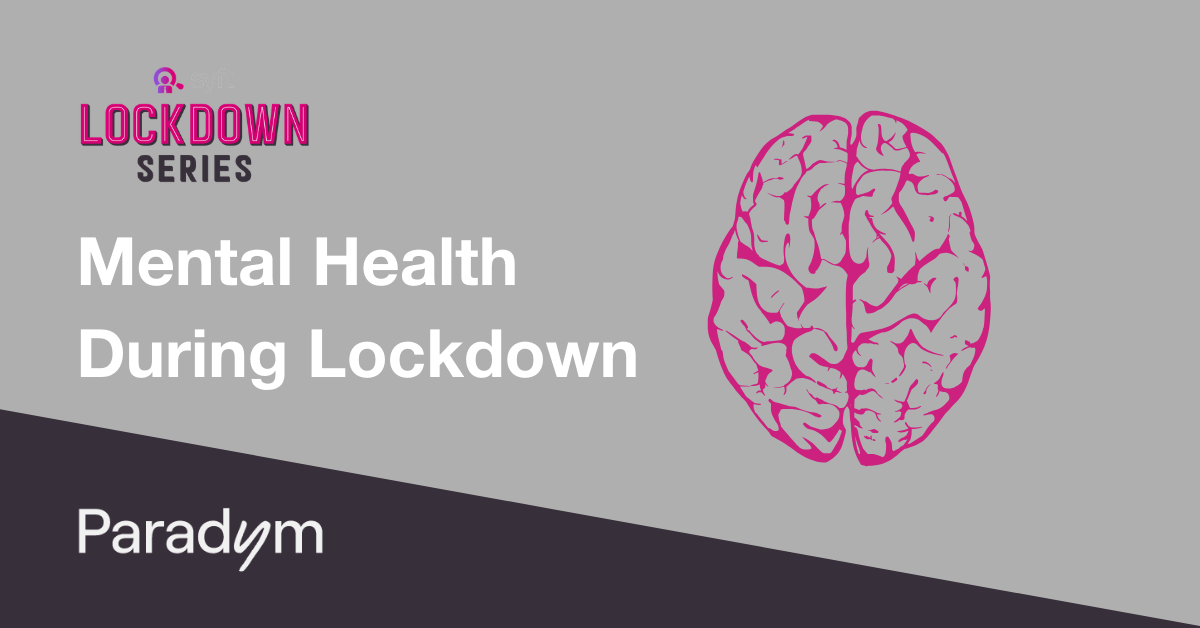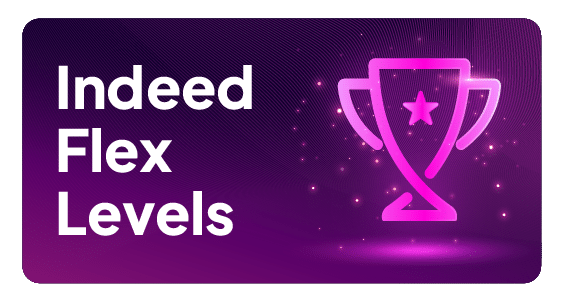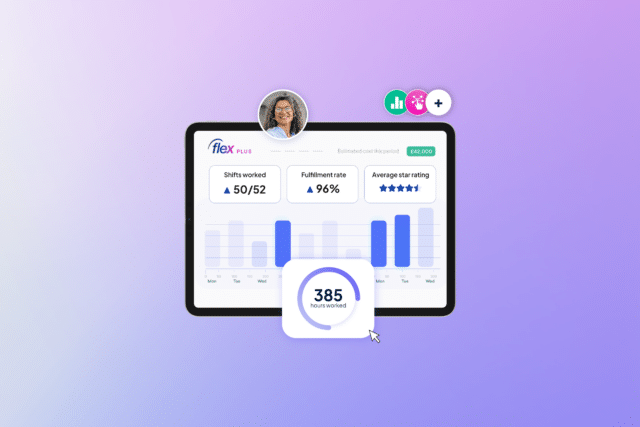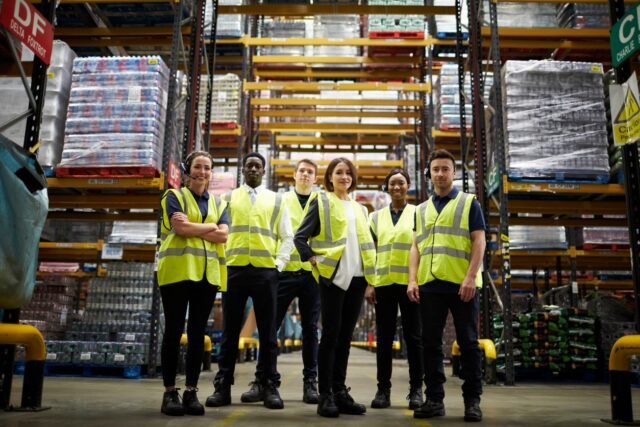
This week, Syft’s Simon Forester caught up with the wonderful Bettina Moltrecht – Head of Psychology and Research at Paradym to get some practical advice on well-being and mental health for a nation in lockdown.
Paradym is a new mental health and well-being app that aims to provide long-term support to people in difficult times. The app draws on a mix of existing psychological evidence, experts from the field and personal stories and experiences, which together form a structured journey for users to grow and become more resilient. Before joining Paradym, Bettina completed her PhD research on the role of emotion regulation in relation to mental health and well-being and worked as a clinical psychologist. She is also part of a UK-wide Covid-19 research network, which investigates the impact of Covid-19 on people’s mental health.
1) How would you advise people to cope with life in lockdown?
The present situation is understandably very stressful for many people. The good news though, is that as humans, we’re adaptable creatures. We’re made for adjusting to our environments and that’s why our minds and bodies are equipped with many different features that help us to overcome challenges.
It’s very important to keep the focus on the things that we actually can change. If you can’t change the situation itself, you have the option to change how you think or feel about it. In practice this could mean that we try to find some positive aspects in a situation by re-framing how we look at it, or we can try to accept the situation as a whole, including its consequences, because fighting against something that we can’t change costs us a lot of energy.
At Paradym we use the two terms – micro and macro strategies – to distinguish between immediate and long-term strategies that we can use to support our minds and bodies in the coping process.
Macro strategies, ie things that we can do on a regular basis to keep our mood and energy levels stable, include things like:
- Getting enough sleep
- Having a healthy diet
- Making plans to avoid stress (For example, making sure we have a hard stop for work instead of allowing it to go on 24/7).
- Making sure that we get our dose of social connection through video chats or phone calls, and engaging in activities that we know we enjoy.
Micro strategies, ie things we do in the moment in response to specific challenges, thoughts or feelings. Including things like:
- Problem-solving
- Changing a situation (e.g., download an app that helps me with my mental health or calling a friend)
- Sometimes just taking a deep breath to pause and think before we react to something.
2) The concept of self-awareness plays a big part of what you do. How does this relate to being in lockdown?
Self-awareness is a skill that we can use to help us cope in lockdown. When we’re self-aware, we’re aware of what happens in our body, mind, and environment.
Self-awareness is one of the key ingredients to psychological change. By practising self-awareness, we can take better care of ourselves in the current situation. Perhaps what works for you now is something different to what worked for you before, this is where self-awareness is key. Maybe pre-lockdown you really enjoyed a high intensity workout, whereas now your needs are better met by something slower like a long walk or yoga. Self-awareness allows you to identify this.
You can practice self-awareness by checking in with yourself regularly to find out how certain activities or interactions with another person have made you feel. Ask yourself, have you felt more or less energetic after speaking to someone or doing something?
A very popular and effective way to enhance our levels of self-awareness are mindfulness or breathing exercises and something like journaling.
3) Many people are worried about the future in terms of job stability and when normal life might resume. How can people best approach this, especially those on furlough?
When we worry excessively about something that may happen to us, we actually don’t problem-solve or make concrete plans, because there’s no concrete problem to solve yet. So we increase our stress levels, by telling ourselves that something might be coming our way.
This doesn’t mean that worrying is generally unhelpful, but it’s important to find a good balance so that we don’t experience more stress, as a result of excessive worrying.
To find out whether you worry too much it can be helpful to ask yourself some of the following questions:
- Has your “worrying” helped you to identify concrete steps that you can take to relieve your stress?
- Do you use “worrying” to distract yourself from the current situation or certain steps of action that you could take?
- Do you feel more or less stressed due to worrying?
- Do you have trouble sleeping, because you worry too much?
If you realise that you worry too much, relaxation techniques can help or bring your awareness to the present moment, by focusing on the things that you can control and change.
4) If we consider extroverts vs introverts during the crisis; presumably they would have very different ways of coping?
The way different people cope with a situation varies significantly. This is not only due to potential personality traits, but also depends on how each individual perceives the situation and what resources they have available. So while there might be groups of people that show some similarities in the way they cope with stressful situations, there are always important individual differences. Because what works for one person, doesn’t always help another person in the same way.
That is why Paradym wants to encourage everyone to find their own path in life. By asking users the right questions, we hope to foster their self-awareness for their personal and very unique situation and subsequently to activate the skills and resources that fit the individual.
5) What are the foundations of creating new positive habits? Or perhaps, adjusting negatives ones.
Find a manageable first step that leads to success. Often people start with steps that are too big, which makes the chances of failing high. However, as human beings we don’t like failure. So the consequence is that we are less likely to try it again. Therefore, it’s important to find a first step that leads to success. You want to be more active?
Start small but successful. You are too busy to squeeze in a 30min workout? Ask yourself what is possible, 20, 15, 10, 5 minutes?! In other words, aim for the possible and most promising number in terms of your success rate.
Also, if you really struggle to commit to a new habit, there’s probably a reason why it’s so difficult for you. It’s important to find out what that reason is, before you keep trying. Is it your motivation? Ask yourself why you want to do this? Is something practical in the way? Solve this issue before you take your small step to success.
A question that we like to ask at Paradym is: does this new habit suit you? Does it actually make you feel better? If you find it too difficult to motivate yourself for a run, maybe it’s not your thing, and a HIIT or yoga workout works better for you. In many cases, there are alternatives that work better for you.
6) How important is relaxation for mental wellbeing?
Research shows that relaxation exercises are good for our health and wellbeing. It can lower depressive symptoms, stress, feelings of anxiety and chronic pain. Not everyone benefits from the same sort of exercises in the same way though, so it’s important to try different things and see what works for you as a person. Some people might find relief in classical meditation exercises, while others benefit more from doing something creative (e.g., music, drawing).
Overall though, the experience of positive feelings like joy are part of our basic psychological needs. That’s why, it is always a good idea to set aside some time for these activities, in particular when we’re stressed.
7) For business leaders and owners; would you advise them differently to say the people that work for them?
We all experience stress differently – the way we have it and how we cope with it. This makes it difficult to advise anything based on a job profile or role.
As human beings we’re often more aware of our own stress experience, and how it affects us on a personal level, and often lack insights on how other people’s experience of stress. This is usually the result of a certain bias that we all have. A good example of this can be seen in shared living situations, where each member of the household is convinced that they unload the dishwasher more than everyone else.
In other words, it is important that each person checks in with themselves individually to identify what they can do and what their needs are in light of the current situation. But it’s equally important to be open-minded and understanding that other people’s experiences might be different for so many reasons.
So, regardless of whether you are a company leader or an employee, if you feel stressed it is important to acknowledge this. However, there are several activities you can try to lower your stress levels, which have been backed up by research, such as physical activity, doing something creative, or relaxation exercises.
8) Do you foresee any major positive outcomes of this global crisis?
This is a very good question, which reminds me of a ‘future-retrospection’ exercise that I can encourage everyone to try. It’s a type of retrospection exercise from our future minds.
You imagine yourself in the future, from where you think back to the present times and play out how your coping strategies helped you to get through this difficult situation, and perhaps even led to growth.
Before we start this exercise, I would like to share an experience I had with one of my neighbours the other day, (who I only met because I am now part of a local volunteer group established in response to the current situation). Amongst other things, I am now running regular errands for my disabled neighbour who suffers from a motor neuron disease. She told me that she currently feels less lonely and more supported than at any time in the past 20 years that she had lived in within this community She’s hopeful people won’t forget what it means to be part of a community and to interact with their neighbours, once this is over.
With this in mind, let’s do an imaginary fast forward to the year 2021. It’s a Saturday in late August, we’re on our way home from the park where we spent most of the day with our family and friends. On our walk home, we see people sitting in cafes having ice-cream, children play in the streets and a group of cyclists is heading over to a friends’ garden for a bbq. As we think back to the year 2020, we realise that many things have turned out differently than we had ever anticipated it.
Companies and their employees have found flexible ways to support working from home, so that mothers and fathers spend more time at home with their family and less on commuting. We share tools and old devices with our neighbours, instead of buying new items that we only need once. We feel comfortable asking for help, because 2020 has given us the opportunity to practice this.
In 2020 we started calling old friends and family members again, because we were given the time to do so. In 2021 we prefer calling friends and families, instead of sharing our news solely on social media.
The past has changed us, our culture and society. When we think back we’re surprised how we managed to get through these difficult times that seemed so unbearable. Those months, where we re-discovered the joy of books, puzzles and handcrafting. Those months, where key workers and public services were recognised for their importance and where the NHS finally received the funding that it had deserved for years and resulted in better health care services. I am sure everyone has their own personal version of this practice, which could be very different from this one. I hope that sharing my version of this exercise encourages people to create their own and find some hope in the present times.








